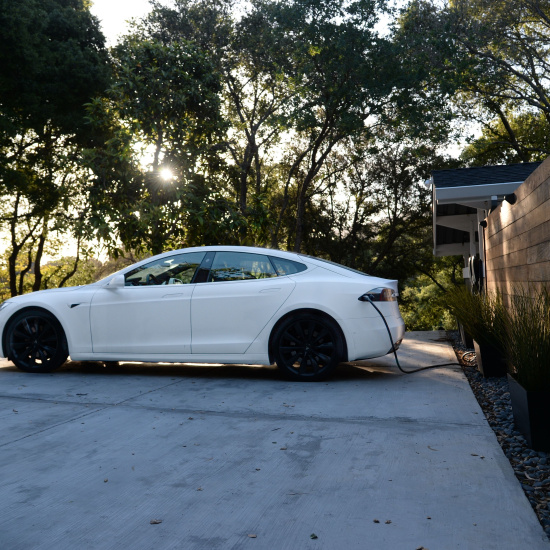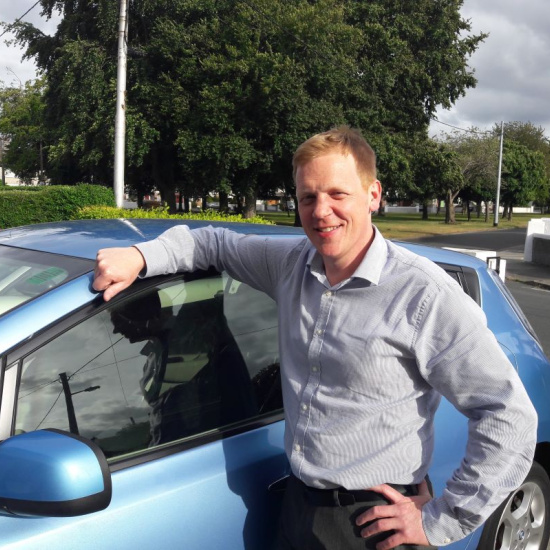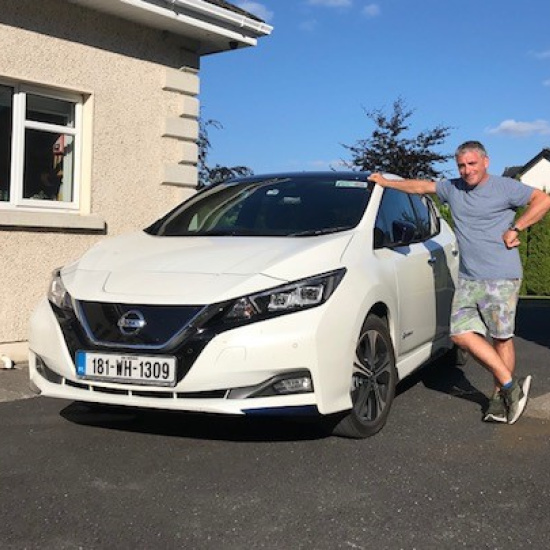Experience the feel-good factor with an EV
After over 40 years of driving petrol and diesel cars, Pat Sharkey switched to driving electric in 2017. And she has never looked back!
More and more we are hearing about the benefits of driving electric - cars that are cheaper to run, cheaper to maintain, better for the environment, and not forgetting that 'feel-good' factor. As demand and interest in EVs increase, we are seeing more manufacturers advertise their latest collection of EV's, promoting improved range (distance it can travel without charge), comfort and all the added extras you would find in any high-end petrol or diesel powered vehicle.
EV's are taking off in Ireland. We have gone from one thousand EVs on our roads in 2015 to twenty thousand on our roads today. It's no longer just the 'techies' and the 'greenies' driving electric, it's everyone with an interest in saving money, driving clean, and protecting our environment from harmful greenhouse gas emissions. The Government have set a new target of 950,000 EVs on our roads by 2030. Ambitious? Yes! Achievable? We believe so!
Looking to experience the feel-good factor of and #EV? Hear from Pat Sharkey about why she made the switch to #electric @SEAI_ie
Click to tweet (opens in a new tab)
We recently spoke to Pat Sharkey, who made the switch to electric in 2017, about her reasons for ditching diesel.
Pat, who is now retired, lives with her husband Don in Malahide, Dublin. Pat has always had an interest in sustainability and environment, and this is what initially prompted her to switch to electric. A scary move to make after 45 years of driving petrol/ diesel cars!. This enthusiasm clearly filtered down to their children, with two of them now driving Hybrids. Their son Fergus Sharkey works here at SEAI so he was great for encouraging his parents and talking to them about the range of grant eligible vehicles available on the market. Of course, all of this information is available on the SEAI website, and Pat and Don had no trouble navigating their way through the grant process.
Pat and Don like to holiday in lovely Leitrim and regularly travel up and down. They recently swapped out their Nissan Leaf 30kWh for a Hyundai Kona 64kWh. "With our latest EV the highlight has been able to drive to Leitrim which is around 160 km and we can do the round trip without a problem. The battery lasts 400 - 440km and takes overnight to charge at home or 45 min on fast charge to 80%".
"With our latest EV the highlight has been able to drive to Leitrim which is around 160 km and we can do the round trip without a problem. The battery lasts 400 - 440km and takes overnight to charge at home or 45 min on fast charge to 80%".
Our own research at SEAI tells us that range anxiety is one of the main reasons people are still reluctant to make the switch to electric. They fear they will break down on the side of the road and not make it home. Most new EVs on the market today have a range of over 350km (distance you can travel before needing to change). This not only makes an EV ideal for city commuters who drive an average of 60km daily but it also means you can now travel from Dublin to Galway without stopping. And if you do need to stop on a long journey, 45mins on a fast charge will get you back to 80%. When is the last time you drove 350km without taking a break?
SEAI also recommend that you also invest in your own EV home charger. Although public charge points are now becoming more readily available, nothing beats the comfort of being able to charge up while you sleep. It's easy, cheap and convenient. Pat and Don got their home charger back in 2017 "Home charging is the best option now as prices are being implemented for street and service stations on the 10th of August. Using night rate home electricity at around 8 cent per kW compared to 28 cent (station price) is a no brainer" says Pat.
Everyone we speak to about his or her experience of owning an EV are quick to comment on the cost. It's no secret that EV's are simply much cheaper to run and maintain. Yes, there is the initial cost price that is still quite high, but with the grant from SEAI and the low running costs, the lifetime value of owning an EV can be considerably less. No more forking out €60 /€80 to fill the tank with fossil fuels.
Pat's closing piece of advice to anyone considering an EV purchase was to "buy an EV that has a range above 400km. It's worth paying extra for this feature and if you have the money go for a solar powered home charger"



